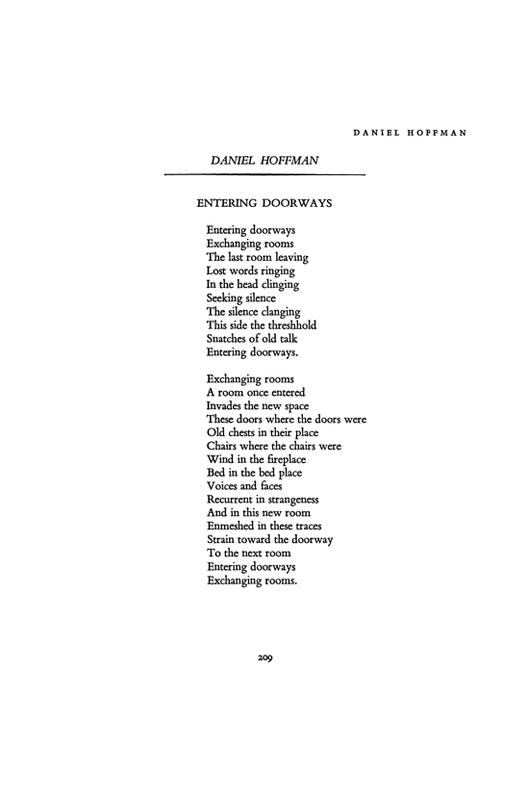|
Remember when I said all summer that I was all about the small projects? For me right then, when my brain was putty after jumping off the graduate school sprint train, I think that was true.
Except I'm now remembering what I've refused to admit for years: there's no such thing as a small project. A filmmaker friend once tried telling me this truth. I nodded and simultaneously shook my head in response. I knew he was right but I didn't want to believe it. I LOVE the small projects I'm working on right now: the short plays, the puppet plays, the bitty flash creative bursts of things, but oh BOY there's a lot that goes into each one. Meanwhile, I have a couple major projects (or five...) I really want to lean into. I need to go big with those giant pieces. I know that takes huge energy and longterm commitment, and it's a turbulent swim full of a trillion short steps within each large thing. So after these four shorts go up and down by the end of next month, I need to bat away the temptation of accepting the tiny stuff. This is going to be hard to do. I think I can. I think I can. Help me stay strong. It's not that I won't do another small project again after October, but with the number of big ideas that are asking for my attention, and with the amount of dedicated focus each will take, I've got to be more conscientious about my reservoir of time. Yet now, while my nose is in these current beautiful collaborations with outstanding artists and brilliant humans, these small shorts have my heart and mind. And it's a gorgeous water treading. I can't wait for you to see these plays I'm making with dear friends when they open next month. And in advance, I relish the spaciousness ahead, when I will carve out actual time for the big stuff.
0 Comments
This week I completed a survey covering my last year of graduate study at California Institute of Integral Studies. The primary crux of this survey asked how much of my experience aligned with the school's Seven Commitments: CIIS is committed to the facilitation of integral learning. Paramount to this are its Seven Commitments: 1. Practice integral approaches to learning and research - The University strives to facilitate the integration of body-mind-spirit. It values the intellectual, emotional, spiritual, imaginal, creative, somatic, and social dimensions of human potentiality. Committed to studies and practices that cross traditional disciplinary boundaries, CIIS emphasizes dynamic systems understanding and integrative learning. 2. Affirm spirituality - The University is committed to studies and practices of multiple spiritual and wisdom traditions and to their expression and embodiment throughout the university community. While no one tradition is shared by all, the importance of the spiritual dimension of life is affirmed. 3. Commit to diversity and inclusion - Promoting a dialogue of difference, the University is committed to reflecting the diversity of the world's peoples, cultures, and spiritual traditions. At CIIS, inclusion means consciously welcoming the contributions of all people to academic scholarship and multiple ways of knowing. CIIS embraces intellectual, cultural, and spiritual traditions that further the effectiveness of emancipatory movements, such as feminism, and social and political liberation. 4. Foster multiple ways of learning and teaching - The University honors many learning modalities and ways of knowing, providing a rigorous and transformative education across all learning approaches. CIIS welcomes experiential, collaborative, embodied, artistic, participatory, and other modes of learning and knowing into the classroom, believing that they deepen and enrich the learning experience. 5. Advocate sustainability and social justice - CIIS is committed to exploring and promoting knowledge and practices that affirm human solidarity with the entire Earth community. Recognizing that business as usual threatens the integrity of life itself on a planetary scale and perpetuates structures of oppression on a large portion of the human population, CIIS strives to generate creative alternatives leading to a just and flourishing world. 6. Support community - Community at CIIS is founded upon core values that affirm shared understandings and differences, scholarly efforts, and compassionate action. Such community is a vital part of the University's aspiration to provide an effective, visionary, and nurturing environment for integral education. CIIS is committed to providing a welcoming community for all people. 7. Strive for an integral and innovative governance - The University recognizes the significance of a mode of governance that would eliminate, or at least reduce, the polarities and fragmentation that typically plague organizations. The commitment to integral governance aims to inspire holistic organizational interaction among all members of its community. This commitment stands among the seven as a constant challenge and encouragement to try new forms, procedures, criteria, and language that reflect a more progressive and collaborative decision-making process. This moment of invited reflection got me to review these core commitments at this institute of learning I love and miss. Reviewing these got me to think, what are my core commitments? How much does my daily life, writing practice and artistry align with these Seven Commitments? How much do I strive to uplift these ideals through my work and each moment on earth? This present inquiry will keep me reviewing these in the near future and beyond, in order to discover how I can integrate these actions into my aesthetic and creative tenets, and to see what other personal core commitments I might uncover. How about you? Do you have core commitments in your life, work and creative dailyness? What might those be? I'm interested. Feel free to share. XOXO * (from photo) To learn more about the Sri Yantra, as I just did, go HERE. This past Saturday morning I had a wonderful time in a full room of 3rd - 6th graders--plus some parents and young writers below and above that age range. This was the first Free Youth Drop-In Writing Workshop at The Cabin, and I feel the large group of us had a good time. If you weren't one of the 30 (youths) to 40+ (everybody) in attendance, here's a breakdown of what we did. You and your young writers can explore these ideas on your own.
Objective: Use visualization and conversation to open up gateways through images from memory, and use strong sensory details to capture these images through writing. My aim: to have a fun time this Saturday morning unlocking our creative voices and writing something new that can make us proud and start our weekend adventures well. After talking briefly about the senses and imagery, we got into a visualization exercise. Visualization Much writing starts with an image. And also writing about stuff we know well. Sometimes we’re so close to the stuff we know well, we forget it’s important. The details of your life are very important – even ones that seem too small to care about. Close your eyes. Take yourself in your mind to a part of your home that you know well. Where you live now, or somewhere you used to live. Some small part of it. Your front door, maybe. Or a window. Or table. Visualize it closely. Use all your senses. Take it all in. If you stand there, what’s around you: in front/behind/right/left/above/below. Once you have a good sense of you in that place, open your eyes. You’re going to tell your neighbor what you saw. Turn to a neighbor. Take turns sharing all the details you noticed about this object/place, for one minute each. Read Entering Doorways We read it to ourselves and out loud. We discussed the poem--including words that need defining and phrases that stand out. We find the senses in the poem, and talk about how small things become important here. Write Go back to your image. What you visualized, what you shared with your neighbor. Get it back in your mind. Picture it with all your senses. Get a clear image. Now, write down what you see. Record this portion of your house. You can use this poem as an example of how a person made something small bigger. You can make it a poem, a story, a description, whatever you like. Get in all the details. Use all the senses. Go deeply into the small things. (Share, Reflect) The room felt brighter after all that reading, discussion, writing and sharing. If this is something you'd be interested in sharing with the young writers and artists in your life, let them know it will be the second Saturday of each month. If the series continues to go well, we'll continue into 2017! October 8, Danny Stewart will lead the 7th-and-up graders, and I'll see you all again in November. Happy Friday to you! To spend more time in this deep work.
To spend more hours in the day on longterm projects. To delve into the art of slow writing. To do less. And free-fall. I've been trying to cut down my number of projects, but I still have more than I'd like. I end up humming-birding between several tasks an hour. It makes me want to turn away from all of it. I still continue, but it's shallow. That's not how I want to be. That's not where I want to be in my process. The logistical in-betweens take me away from the big stuff I love, the important stuff. I can attend to these minor tasks better when I don't give them space all the time. I know I need to tend to these little things, too, but right now they're distracting me. I need to find a better relationship with the minor to-dos, and put them in a smaller corner. Lots of lesson planning, emails, meetings, social media, paperwork. Cut that down. Schedule specific hours for that and do it faster within those time blocks. Busy-ness is stripping down my making. Let the little things fall away. Learn from the procrastinators. Be creatively lazy. It'll take me some time to figure out how to do this without dropping plates, burning bridges. I must be patient with me. If you have learned advice on this matter, I'll listen. And here I am, posting this article again, because it's important. Until next time. In a new ongoing play project, I'm inquiring into grief, and more specifically, how we talk to children about grief. As part of this research, I'm reaching out to select individuals to discuss their thoughts and feelings surrounding this topic. 10 days ago, I had the pleasure of talking with the esteemed artist, yogi and Thai massage practitioner Jodeen Revere about her experiences on grief, loss and longing. As I continue contacting people for these conversations, I'd be honored to hear from people I'm not picking out directly. I realize that this subject is weighted, difficult and deeply personal. For this reason, unlike my 100 Love Memories Play Project, my aim is not to gather as many people's memories as possible, but on having genuine and meaningful dialogue with a few handfuls of people, tops. I don't plan to start a Facebook or tumblr page requesting your stories. Jodeen allowed me to record her interview (and since then I've been going through it, picking out moments and phrasings that may prove especially useful as I continue building the play), but at this point it's not something I plan to share publicly, even anonymously. If we talk, I will ask for permission to record, but we don't have to do that. This investigation is much less about mining specific details for a play than was my last big project public question ("What's your love memory?"). Moreso, this is about discovering the various threads in the vast tapestry that makes up the many physical sensations, thoughts, beliefs, ideas, emotions, memories, anecdotes and attitudes surrounding grief. I'm conducting separate grief research outside of these talks, as well as other examinations into a particular geographic habitat and zoological makeup (more on that later), and story building that is somewhat related to this study, but also independent from it. Anything you want to share will be honored and cherished, and will add to that fabric. This word "grief" can be daunting and heavy. You may be wondering, "Even if I wanted to share something with you about my experiences, where would I start?" For this reason, I decided to post the questions I originally wrote out for my conversation with Jodeen. I didn't use all these questions with her. More came up that aren't on this list. If we set up a time to talk, I may not use them all with you, and more could arise. However, this way you can see where we might go in this dialogic journey. If you want to share your thoughts, you can contact me to set up an in-person, phone or Skype interview, or you can choose one or more of these questions, email me your answer(s), or tell me in person. No pressure. Just if you're interested, and want to share. The Questions: What do you know about grief? About longing? About loss? How have you experienced grief? When was the last time? When was the first time? Where did it take you (in your body, in your mind, in a physical location...) How did you deal with that? How would you talk about these experiences with a child? A small child? Have you ever had to do that--talk about/explain grief/reasons to grieve to a child? When? What were the circumstances? How did that conversation go? How did they react? And then what happened? Have you ever seen animals experience grief? What did that look like? Why is grief important? Why is it important to talk to children about grief? What else do you want to tell me about grief? |
Like what I'm posting? You can leave me a tip!
$1, $10, $100, whatevs :) Heidi KraayProcess notes on a work in progress (me). This mostly contains raw rough content pulled out of practice notebooks. Occasional posts also invite you into the way I work, with intermittent notes on the hows and whys on the whats I make. Less often you may also find prompts and processes I've brought to workshops, as well as surveys that help me gather material for projects. Similar earlier posts from years ago can be found on: Archives
April 2024
Categories
|





 RSS Feed
RSS Feed